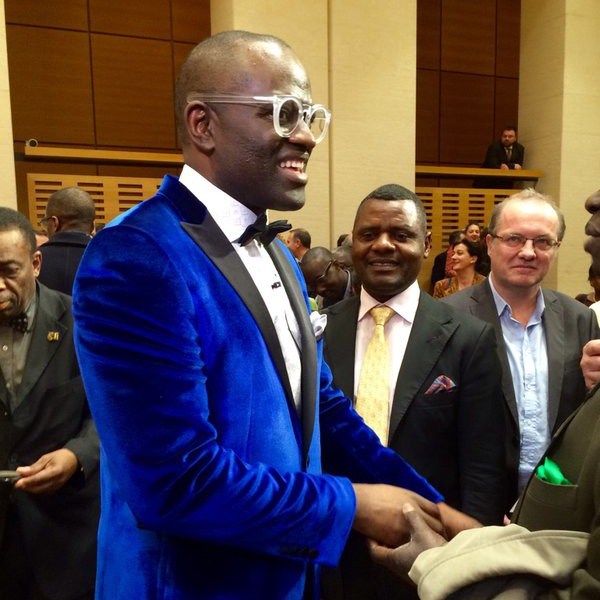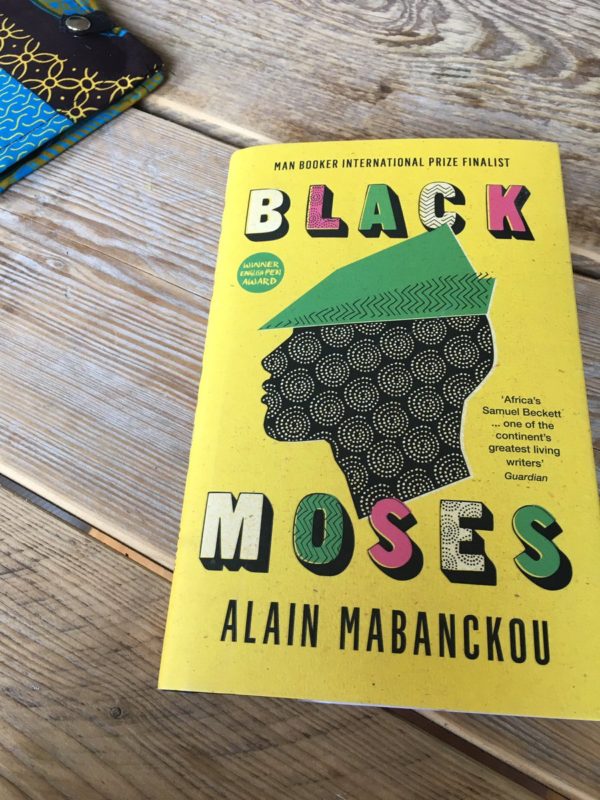
Alain Mabanckou’s Black Moses has won the 2018 Hurston-Wright Legacy Award. The Congolese writer and UCLA professor’s 11th novel, which was longlisted for the 2017 Man Booker International Prize, won in the fiction category, ahead of finalists American Jesmyn Ward’s Sing, Unburied, Sing, which won the 2017 National Book Award for Fiction, and South Africa-based Nigerian Yewande Omotoso’s The Woman Next Door, which was longlisted for the 2016 Baileys Prize. The announcement was made at a gala in Northwest Washington.
Founded in 1993 and named in honor of American writers Zora Neale Hurston and Richard Wright, the Hurston-Wright Legacy Award aims to “encourage writers of African descent and to ensure the survival of literature by black writers.”

Written in French, Black Moses is translated by Helen Stevenson and published by Serpent’s Tail. Here is a description of the 220-page novel by its publishers.
It’s 1970, and in the People’s Republic of Congo a Marxist-Leninist revolution is ushering in a new age. But over at the orphanage on the outskirts of Pointe-Noire where young Moses has grown up, the revolution has only strengthened the reign of terror of Dieudonné Ngoulmoumako, the institution’s corrupt director. So Moses escapes to Pointe-Noire, where he finds a home with a larcenous band of Congolese Merry Men and among the Zairean prostitutes of the Trois-Cents quarter.
But the authorities won’t leave Moses in peace, and intervene to chase both the Merry Men and the Trois-Cents girls out of town. All this injustice pushes poor Moses over the edge. Could he really be the Robin Hood of the Congo? Or is he just losing his marbles? Black Moses is a larger-than-life comic tale of a young man obsessed with helping the helpless in an unjust world. It is also a vital new extension of Mabanckou’s extraordinary, interlinked body of work dedicated to his native Congo, and confirms his status as one of our great storytellers.
The judges described Black Moses as “a funny, efficiently-rendered picaresque tale” that “superbly traces the hero’s psychic collapse.” Mabanckou, they stated, writes about the “the perils of tyrannical government” in a setting that “is vivid and engrossing.”
“Black writers continue to push through the barriers that have limited our ability to speak our truth to the world,” said Melanie Hatter, chair of the Hurston/Wright Foundation. “As we navigate this political environment that pits white against people of color; against immigrants; against women, our voices are the stitching that weaves through the tapestry of America. This exceptional array of writers is leading the conversation on the black experience across the United States and throughout the world.”
The Nonfiction Award went to Tiya Miles’s Dawn of Detroit: A Chronicle of Slavery and Freedom in the City of the Straits. The Debut Novel Award went to Ladee Hubbard’s The Talented Ribkins. And the Poetry Award went to Evie Shockley’s Semiautomatic.
Other honourees at the event include: poet and playwright Ntozake Shange, author of the choreopoem “For Colored Girls Who Have Considered Suicide/When the Rainbow Is Enuf,” who received the North Star Award, and Charles Henry Rowell, founder and editor of Callaloo, who received the Madam C.J. Walker Award for “exceptional innovation.”
Brittle Paper congratulates Alain Mabanckou.
READ: An Excerpt from Alain Mabanckou’s Man Booker Prize-nominated Black Moses
READ: Alain Mabanckou Talks Tutuola, Exile, and His Love of Fashion









COMMENTS -
Reader Interactions